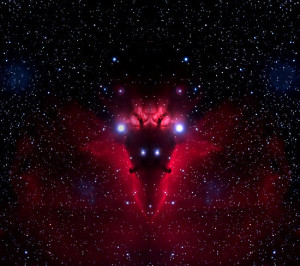John Milton, WWEnd author?
 Occasionally, we at WWEnd find ourselves debating the same topics. The fact that we can’t come to any resolution is interpreted by some to mean that we shouldn’t debate these topics at all. To us, it’s precisely the reason we have so much fun discussing them. One such topic is the perennial “Who was first?” question. Among those, the most heated tends to be “Who was the first SF author?” I, like many fans, have long argued that Mary Shelley ought to hold that distinction, while Dave (our fearless leader) holds that H. G. Wells deserves the title for actually sustaining a career in the genre over his lifetime.
Occasionally, we at WWEnd find ourselves debating the same topics. The fact that we can’t come to any resolution is interpreted by some to mean that we shouldn’t debate these topics at all. To us, it’s precisely the reason we have so much fun discussing them. One such topic is the perennial “Who was first?” question. Among those, the most heated tends to be “Who was the first SF author?” I, like many fans, have long argued that Mary Shelley ought to hold that distinction, while Dave (our fearless leader) holds that H. G. Wells deserves the title for actually sustaining a career in the genre over his lifetime.
We now have a new candidate for the for first SF author: one John Milton. Katy Waldman, over at Slate says that “the text of Paradise Lost is saturated in science.”
Milton met Galileo, for the first and only time, in a 1638 visit that Jonathan Rosen compared to “those comic book specials in which Superman meets Batman.” The “Tuscan artist” appears in Paradise Lost more than once. Book I compares Satan’s shield to the moon seen through a telescope. And the poem is studded with scientific details—“luminous inferior orbs” churning through outer space, descriptions of sunspots and seasons, creatures that evolve (according to divine plan, but still). Through it all, Milton, a storyteller, comes off as entranced by the laws governing the universe. (His mouthpiece in this regard is Adam, who cannot get enough of the angel Raphael’s disquisition on celestial motions in Book VIII.) There’s something very sci-fi about anyone who, while taking care to present his era’s astronomical theories as speculative, still likes to spin that speculation out into long descriptions of cosmic phenomena. Arthur C. Clarke would surely be proud.
Intrigued? In that same article, Waldman quotes a passage describing Satan’s journey through the cosmos on his descent from Heaven to Earth, where he flies past “other worlds,” but does not stick around long enough to find out “who dwelt happy there.” Perhaps Milton left those worlds unsung so that all the great authors we know and love could populate them one by one.
[Slate via Andrew Sullivan]



















 Full Details
Full Details


4 Comments
Yes, Paradise Lost has many disputations upon the most recent science of Milton’s day. In addition to the things mentioned in the article, he has an excursus on the composition of the world from the four accepted elements, and contrasts it with the chaos outside the ordered universe. Interesting stuff.
Eeeehhhh, I’m hesitant to start calling him an SF author. I think we can say he was a speculative author, sure, and we can do speculative readings of his work.. But I don’t think we should call him the earliest SF author, if that distinction makes sense. I think Shelley may be the earliest we can go. I’m very leery of going earlier than that in terms of calling someone an SF, or more particularly a science fiction, author, because if you stretch a classification system too far it can stop being insightful. I’ve read people who say we can go all the way back to the Epic of Gilgamesh and identify speculative elements in it. That’s fine, but if we start calling it SF then the classification of SF becomes no more specific as “book” or “fiction.”
Matt, I understand your concern, but I don’t think this line of reasoning could go further back than, say, the renaissance. In order to have science fiction, you must have science, no? I thought Galileo (and his theories) qualified. I do stop short of naming Paradise Lost a science fiction work, per se (I’m still a Mary Shelly guy on that one), but I do think that Milton’s speculation on cosmology qualifies as science-inspired.
True, Rico. I was talking about SF as the the larger umbrella term Speculative Fiction more than Science fiction, a distinction I should have made clearer in my post. I have read people who suggest we can do a speculative reading of many authors, which is fine, but if that same reading is applied to Science Fiction readings I agree it can’t go much earlier than the Rennaisance. As for the orgins of Science Fiction as a genre, I see Shelley as kind of the proto Science Fiction author, but Welles, Gernsback, and the like as the point where it became a definable genre. When I see people argue for an earlier origin than that I get ancy. As a teacher of writing and occasionally of literature, when I see a theory or lens of reading broadened too much I get anxious, because the more it encompasses the less distinct it becomes. Not that this is what you were doing (you clearly identified yourself as a Shelly guy on this), but it set off those alarm bells for me.
Sorry, the comment form is closed at this time.